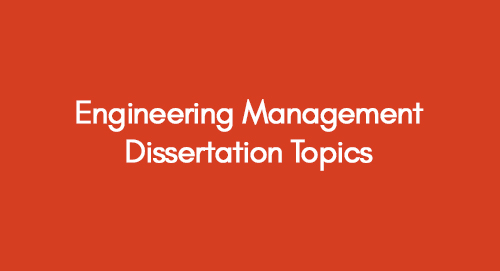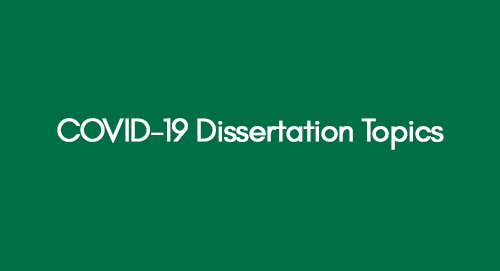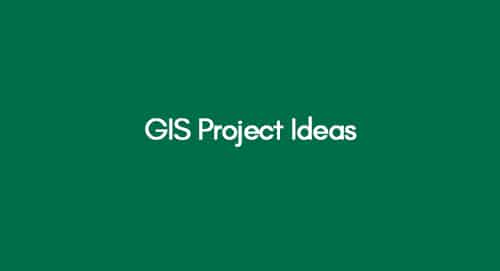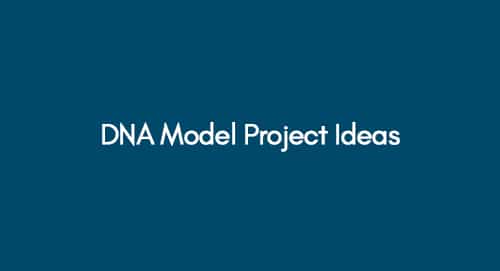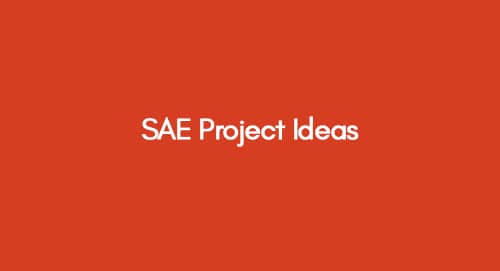Topic 6: Analysing the Effects of COVID-19 Pandemic on Municipal Solid Waste Management in the UK
Research Aim: The primary aim of the study is to assess the effects of COVID-19 on contamination risks associated with waste management. The study reviews the changes to the management of municipal solid wastes during the pandemic. The study is conducted using mixed methods research techniques. Data is collected through time-series data and structured interview questions. Data is analysed using content analysis and inferential statistics.
Topic 7: Assessing the Impact of COVID-19 Pandemic on Global Humanitarian Logistics & Supply Chains
Research Aim: The study proposes to assess the impact of COVID-19 on humanitarian logistics and supply chain methods. The study particularly assesses the effects of the pandemic on humanitarian supply chains in current conflict areas. The study uses quantitative research techniques for data collection and analysis. Data is collected using time-series data from global humanitarian organisations. Data is analysed using inferential statistics.
Topic 8: Examining the Prospect of Blockchain Platform for Vaccine Supply Management
Research Aim: The study aims to assess the implementation of blockchain technology to assure transparent tracing of COVID-19 vaccine registration, storage and delivery, and side effects self-reporting. The study examines if the availability of an operational and transparent distribution chain that all relevant stakeholders can audit affects the success of COVID-19 vaccination campaigns. The study is conducted using qualitative techniques. Data is collected and analysed using systematic literature review and meta-analysis.
Topic 9: The Impact of COVID-19 Pandemic on Global Plastic Waste Management Strategies
Research Aim: The study aims to identify and assess waste management issues faced in developing countries. The study assesses the increase in medical plastic waste and its impact on the civic waste management system. The research is conducted using quantitative techniques, such as data collected from time-series data. The data is analysed using inferential statistics like ANOVA, MANOVA, and t-testing.
Topic 10: Evaluating the Impact of COVID-19 Pandemic on Local Inns and Motels through Customer Satisfaction Changes
Research Aim: The primary aim of the study is to assess the impact of the coronavirus pandemic on the customer satisfaction of local inns and motels in the UK. The study uses quantitative research techniques for data collection and analysis. The data is collected using a tourism accommodation survey, CASBEE survey, and importance-performance analysis. The data is analysed using descriptive and inferential statistics.
Topic 11: Examining the Daily Life of Remote Workers in the UK: Analysing Effects of COVID-19 Pandemic
Research Aim: The proposed study aims to assess the changes to working routines that affect the productivity and well-being of remote workers. The study looks to analyse and understand how a common working day looks when employees are working from home. The study is conducted using a cross-sectional research design. The data is collected using a Likert-scale questionnaire distributed to remote workers in the UK. The data is analysed using structured question modelling using partial least squares.
Topic 12: Examining Factors Effecting Agile Operational Performance of COVID-19 Hospitals
Research Aim: The purpose of the study is to assess the factors which impact the agile performance of covid-19 hospitals in the UK. The aim is to analyse factors linked to the agility of covid-19 care operations. The study uses the Total Interpretive Structural Modelling (TISM) approach to conduct research. Data is conducted through questionnaire surveys and analysed accordingly.
Topic 13: Analysing the Effect of Coronavirus Pandemic on Supply Disruption and Organisational Performance
Research Aim: The aim of the study is to assess the relationship between the COVID-19 pandemic on supply disruption and organisational performance using the mediating variables of customer satisfaction and productivity. The study is conducted using a cross-sectional survey design. The data is collected using stratified sampling methods. The data is analysed using confirmatory factor analysis to assess the model fit of the data. Structural equation modelling is used for hypotheses testing.
Topic 14: The Effect of COVID-19 on Food Waste Generation
Research Aim: The study assesses the effect of pandemic conditions on food waste disposal in urban areas. The study aims to analyse food waste, water waste, and energy waste's impact on public health and the environment. The research is conducted using empirical techniques, such as data collection through time-series data of urban areas. The data is analysed using inferential statistics.
Topic 15: The Impact of COVID-19 on Critical Care and Frontline Perspectives
Research Aim: The aim of the study is to explore and describe the experiences of urban critical care centres during the COVID-19 pandemic. The study focuses on the initial surge of COVID-19 patients in critical care centres in the USA. The research focuses on critical care bed capacity, staffing, equipment, and systematic efficiency. The data is collected using time-series data and Likert-scale questionnaire surveys. Data is analysed using inferential statistics and structural equation modelling.
Topic 16: Online Learning Services for Students to Educate During Covid-19
Research Aim: The thesis explores how the coronavirus pandemic is pervasive and how lockdown has affected many students' kindergarten, university, and school education. This research describes the online services that are delivered through all networks, classrooms, universities, and colleges. The study discusses how students can benefit from it.
Topic 17: COVID-19 Concerns and Solutions: How does Procurement Support the Pandemic Response of the World Bank?
Research Aim: This health emergency response topic examines the commitment of the World Bank Group to a rapid and scalable response to the disease outbreak of coronavirus. Funding, advisory services, and technical support are available in every area, from health care and education to trade and technology. We discuss how numerous teams in the World Bank Community are tackling the potential problems in this research report.
Topic 18: Research to Define Protective Measures in Petroleum and Gas Sectors for Employees
Research Aim: The study attempts to assess whether safety standards for oil and gas industry employees are followed. What are the obstacles to keeping the emotional distance between employees? How do be these problems overcome?
Topic 19: Suggestions Regarding COVID-19/Coronavirus Epidemic for Risk Managers and Businesses.
Research Aim: The study examines the outbreak of Covid-19 and how the rapid change in the condition of corporations and risk control is occurring. In addition to the apparent public health threats, research revolves around the significant disruption-related effects on transport and opening constraints organizations, canceling activities, staff issues, disturbances to the supply chain, uncertainty on the business, financial and cash flow problems. During the Covid19/Coronavirus epidemic, this research report will discuss issues for industries and risk managers.
Topic 20: Investigation of the Effects of Coronavirus on Banks and The Sustainability of Banking Following the Pandemic.
Research Aim: This study is one of the covid-19 business dissertation ideas, which is intended to describe the effects of coronaviruses on banks and the potential of banking after the pandemic. What's the forecast? What are the challenges? How will these problems be overcome? This study can also cover the domain of what steps banks are taking to keep their staff from getting infected.
Topic 21: Contractors and Constructors After Covid-19: Sector, Tendering, and Business Planning
Research Aim: The goal of this research is to classify builders' and contractors' conditions. What is your intention in addressing the crisis of COVID-19? How did this impact the private sector and tenders?
Topic 22: Coronavirus: Dubai Tourism Emphasizes the Wellbeing of The Emirate's Hotel Industry, Denying Bloomberg Research, But Is This the Situation?
Research Aim: The Dubai Tourism and Commerce Department has dismissed a Bloomberg study on the adverse effect of the coronaviral pandemic on the Emirates' hospitality companies. The main analysis method is used to collect data from selected stakeholders in the hotel business across the Emirates to evaluate whether the current Covid-19 crisis is triggering distress and financial harm to the hotel sector.
Topic 23: A Critical Analysis of the How COVID-19 Pandemic Transformed and Digitalised the Healthcare Sector - Evidence from the UK
Research Aim: The researcher aims to conduct a critical analysis of How the COVID-19 pandemic transformed and digitalised the healthcare sector. The researcher aims to collect primary data from the UK for the completion of this study.
Topic 24: Fighting the COVID-19 Pandemic with 5G Technology
Research Aim: The primary aim of the study is to assess how 5G and the Internet of Things (IoT) can effectively be used and developed to fight against the COVID-19 pandemic. The study presents its hypotheses using use-cases on 5G, and IoT can be enabled to provide innovative solutions in areas of telehealth, contact tracing, education, e-government, information sharing, remote offices, and smart manufacturing. The study presents use cases in each of these scenarios to present solutions to the instrumental issues identified during the coronavirus pandemic.
Topic 25: Transformation of Medical Technologies During the COVID-19: A Review of Challenges and Opportunities
Research Aim: The primary aim of this study is to analyse the transformation of medical technologies during COVID-19. This dissertation presents a critical review of the challenges and opportunities for this forced transformation.
Topic 26: Empowering People Through Transformation of Healthcare: What did we learn from the COVID-19 Pandemic?
Research Aim: The primary aim of this study is to analyse how we can empower people through transformation of the healthcare. This study aims to present what we learnt from the COVID-19 pandemic.

